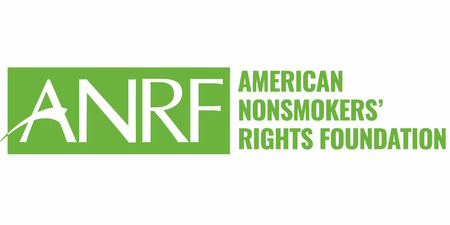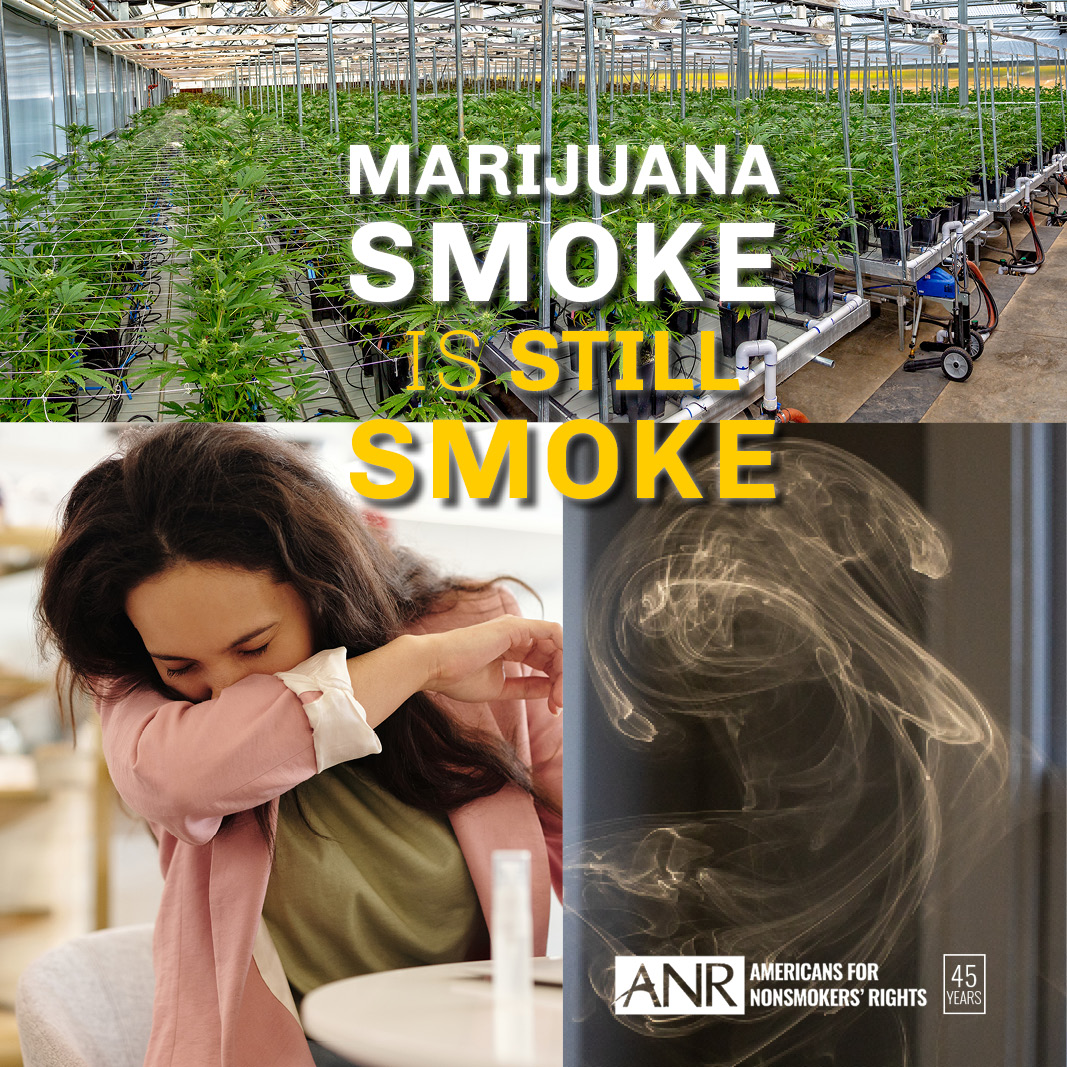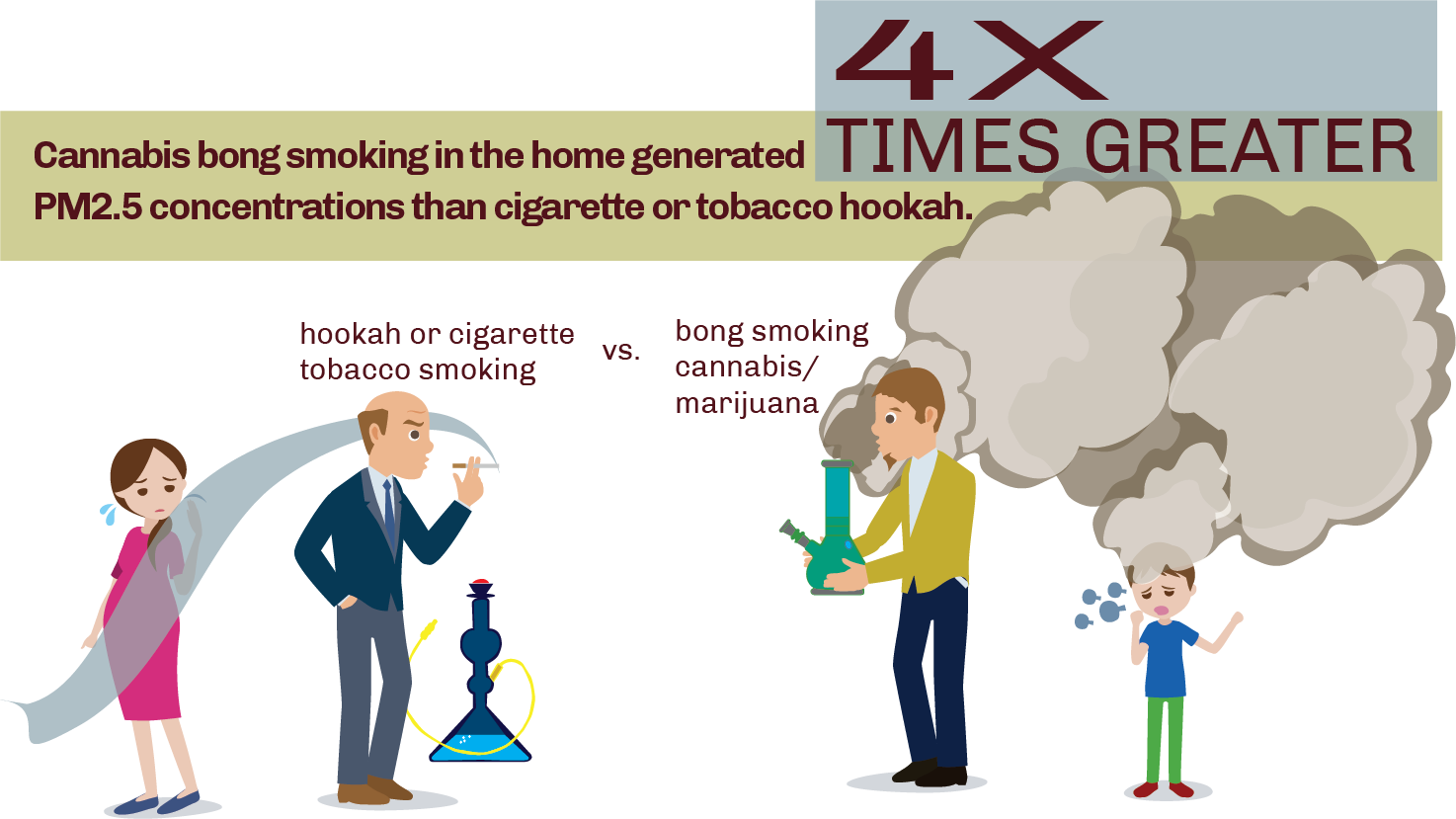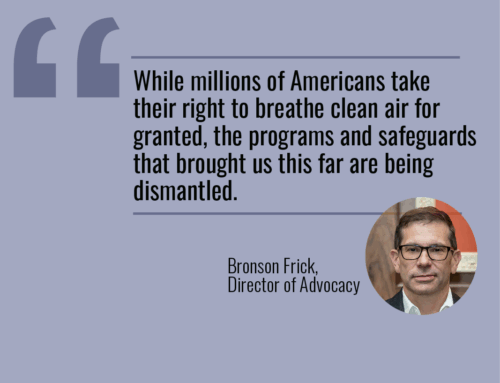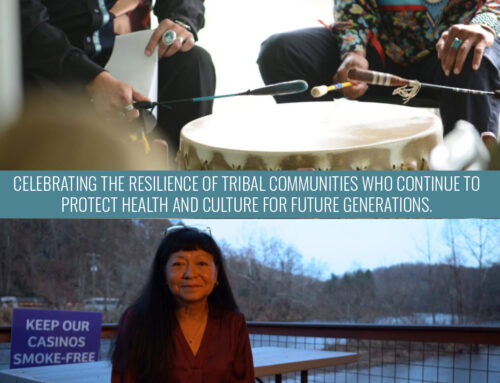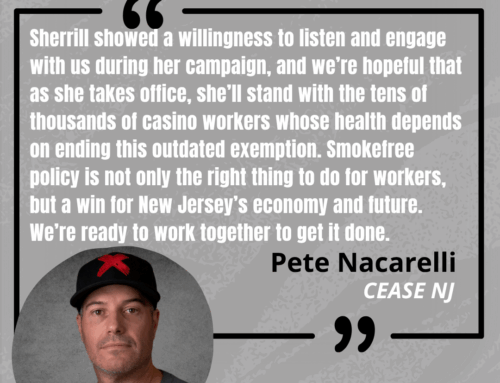Two new studies provide more insight on the health risks posed by exposure to marijuana smoke and the concerted effort the marijuana industry is making to influence policymaking.
First, an article from researchers at the University of California at Berkeley, Fine Particulate Matter Exposure From Secondhand Cannabis Bong Smoking, found that contrary to popular belief, cannabis bong smoking is not safe for non-smokers. A bong is a device, similar to a hookah, that cools inhaled smoke from the heating bowl through water to allow for a larger quantity of cooled smoke to be consumed. The researchers discovered that “cannabis bong smoking in the home generated 4 times greater PM2.5 concentrations than cigarette or tobacco hookah (waterpipe) smoking.” The significant increase in secondhand smoke output from bong smoking, even compared with cigarette and hookah smoking, is concerning and provides additional rationale for why smokefree spaces should be free from all types of secondhand smoke exposure, and that smokefree laws should not be weakened to allow indoor marijuana smoking.
Second, a study this month by researchers at the University of California at San Francisco looked at cannabis/marijuana industry lobbying in Colorado, the first state to legalize adult use of cannabis. They found that between 2010 – 2021, the cannabis industry spent more than $7 million to lobby the Colorado State Legislature in support of 367 bills that tried to make cannabis use easier and more accessible. Bills that succeeded in being adopted include one that weakened smokefree air protections by allowing communities to license businesses to permit marijuana smoking and vaping indoors,including in restaurants that are open to people over age 21.
The study also found that nearly half of lobbyists did not disclose that they represented the cannabis industry or interests, which makes it difficult for people to track the industry’s activity and spending. As the study notes, “The cannabis industry has an interest in creating a regulatory environment which maximizes profits at the cost of public health, similar to the tobacco, alcohol, and food industries.” It is imperative for public health advocates to educate policymakers and the public about the cannabis industry’s well-funded lobbying activities that aim to promote their profits over the public’s wellbeing.
Overall, these studies highlight the need for tobacco control and public health advocates to continue working to protect smokefree air laws from marijuana industry-supported attempts to weaken these important workplace protections. The body of research on secondhand marijuana smoke is broad enough that we know that all types of smoking and vaping should not be permitted in indoor smokefree spaces in order to protect health.
Read more on our marijuana page
#smokeissmoke
